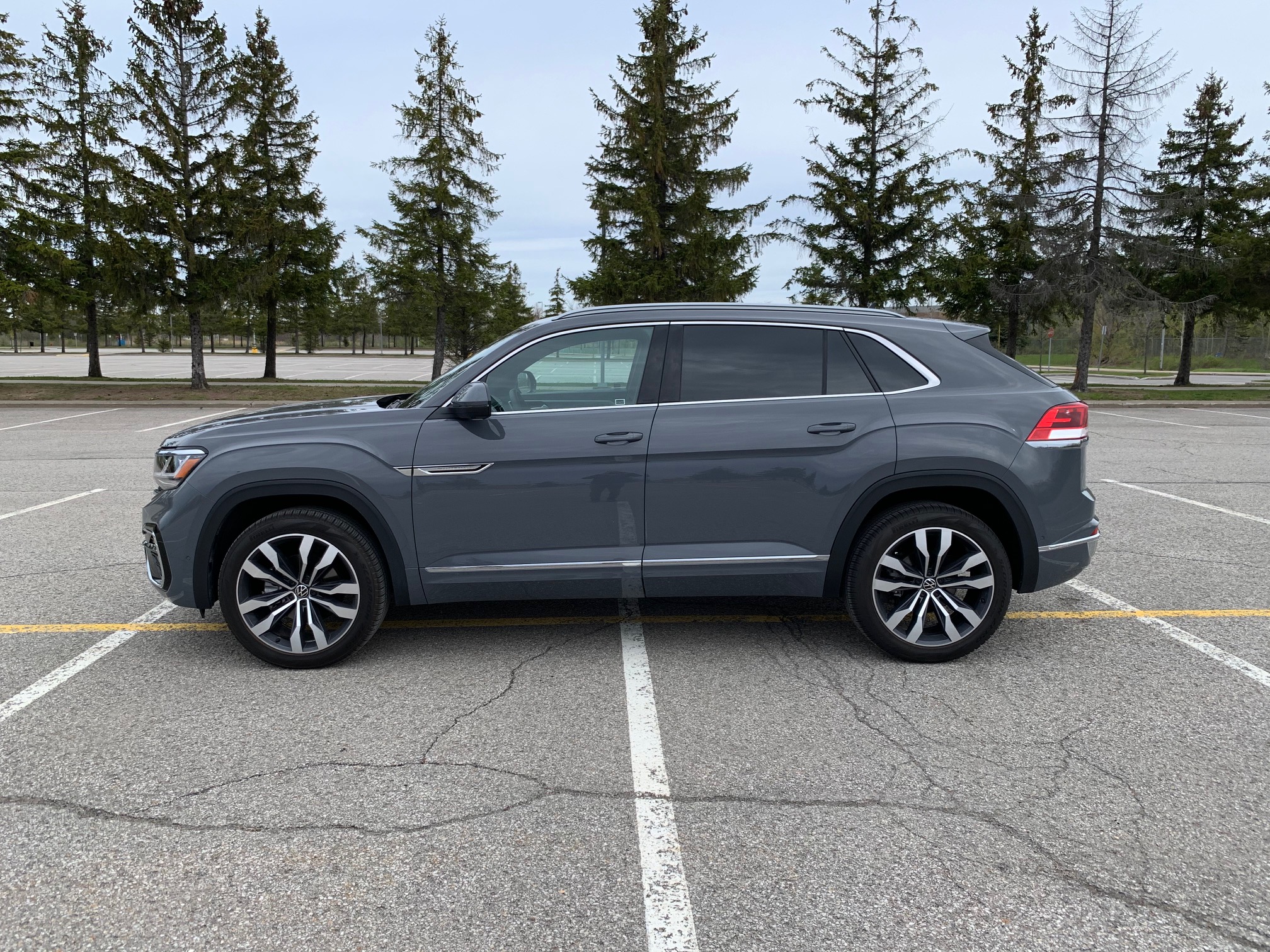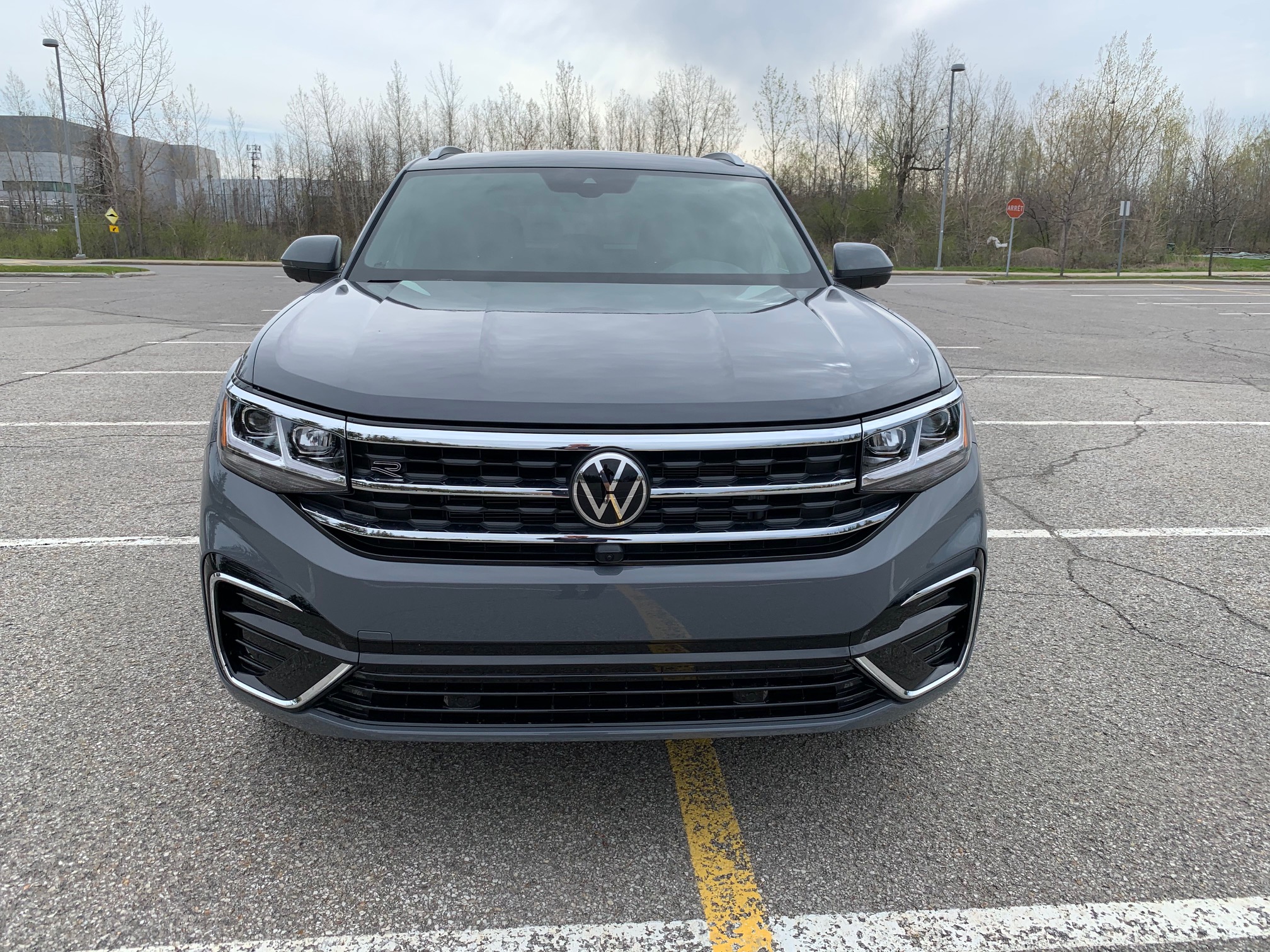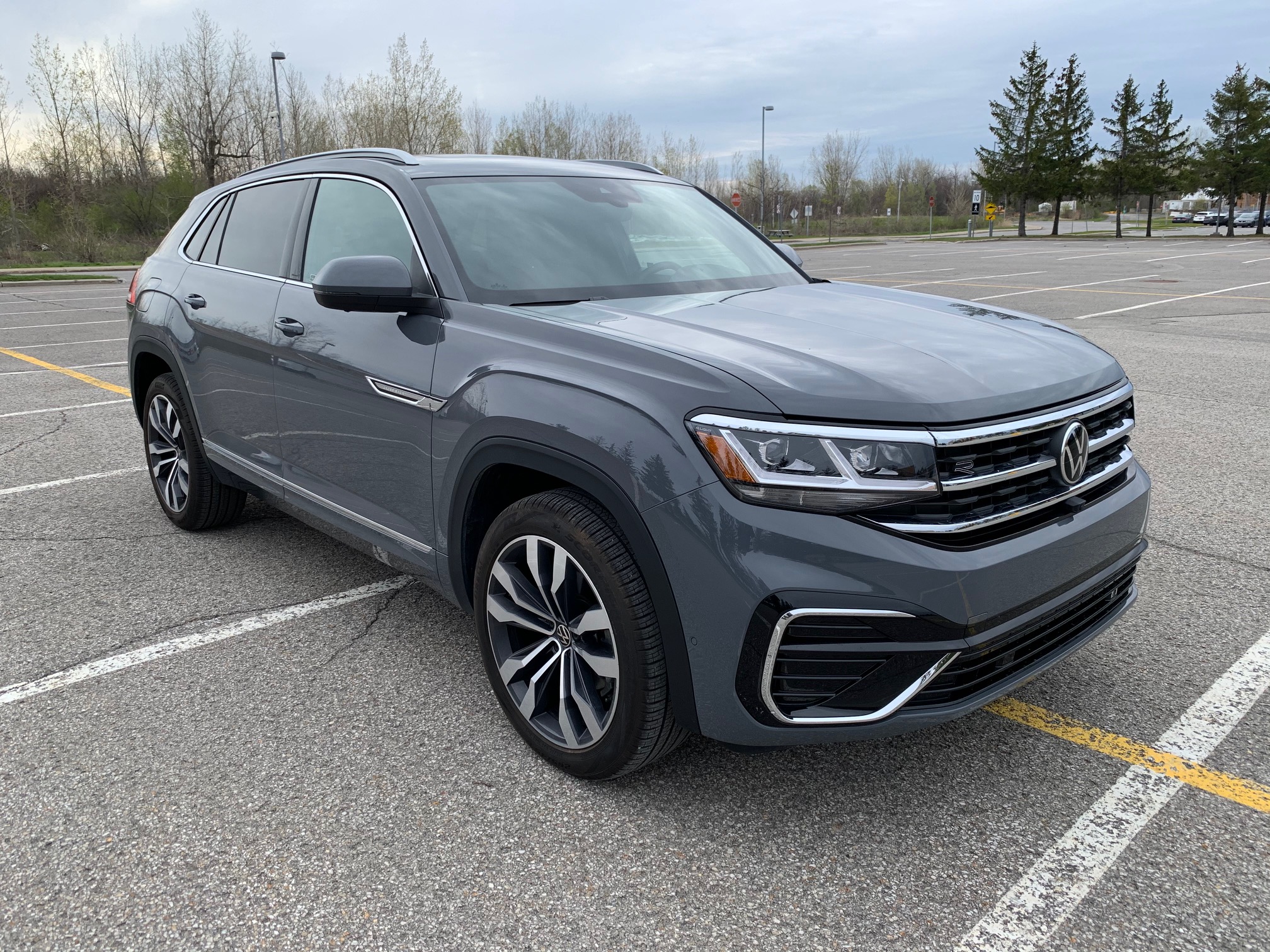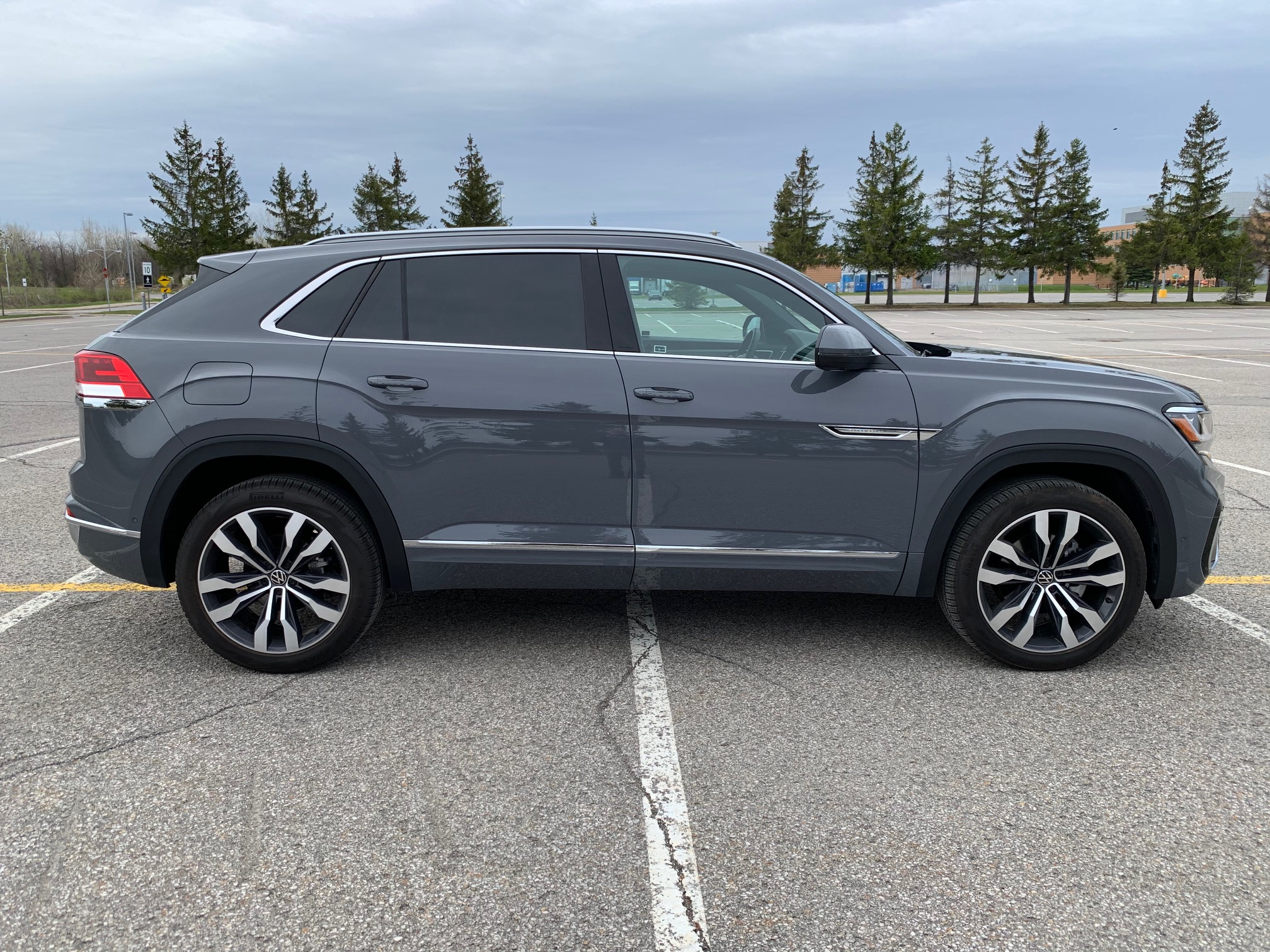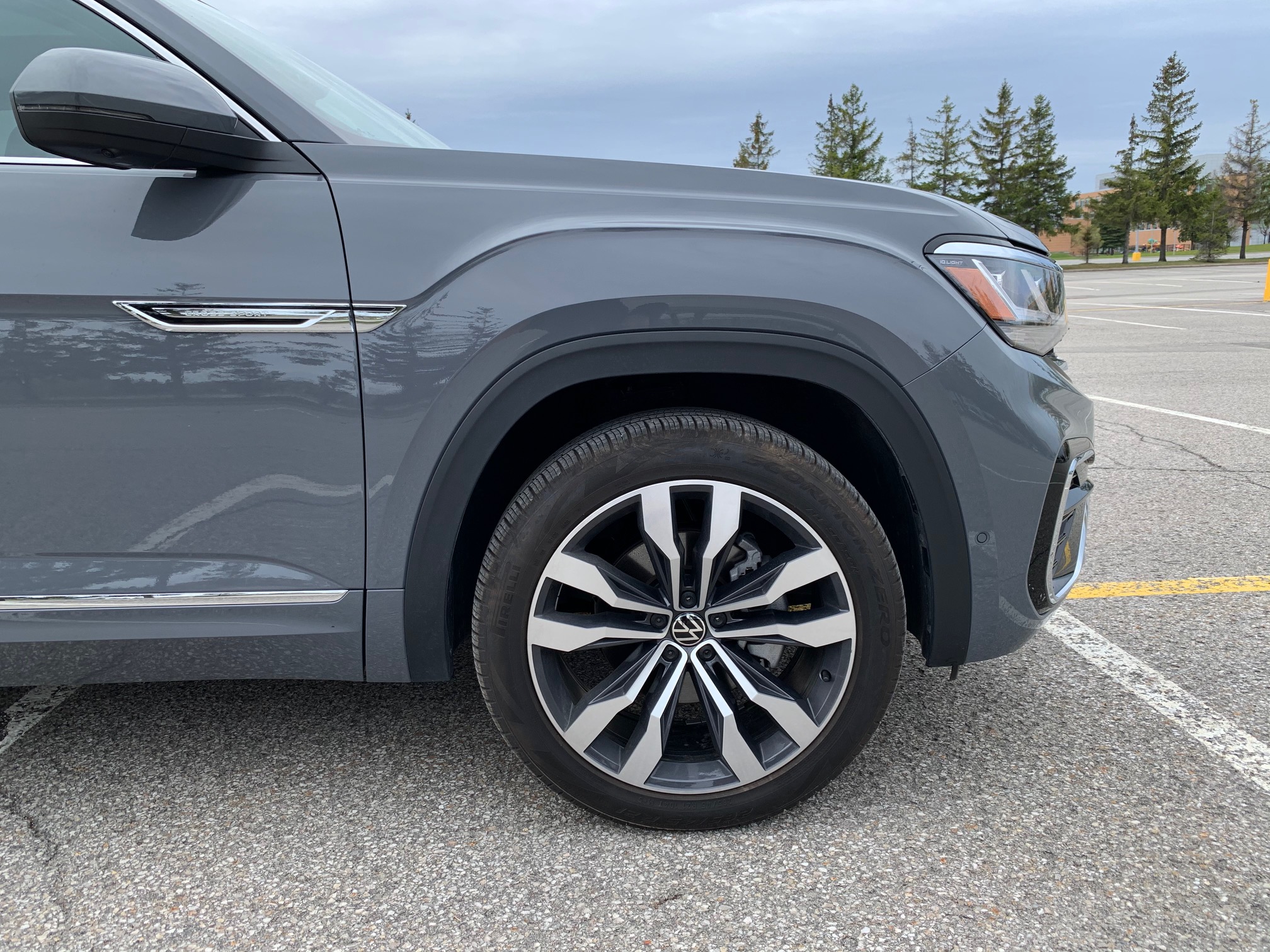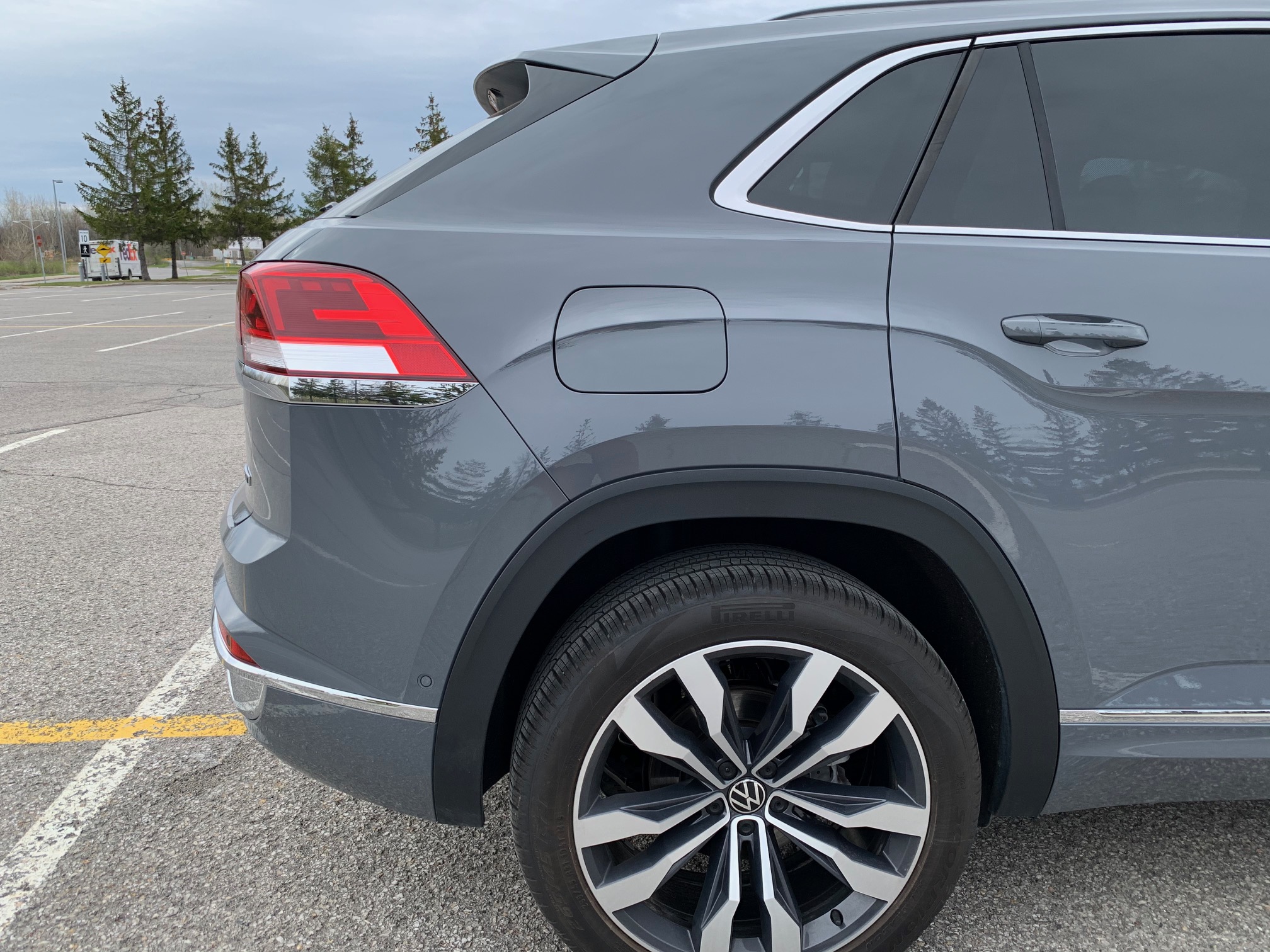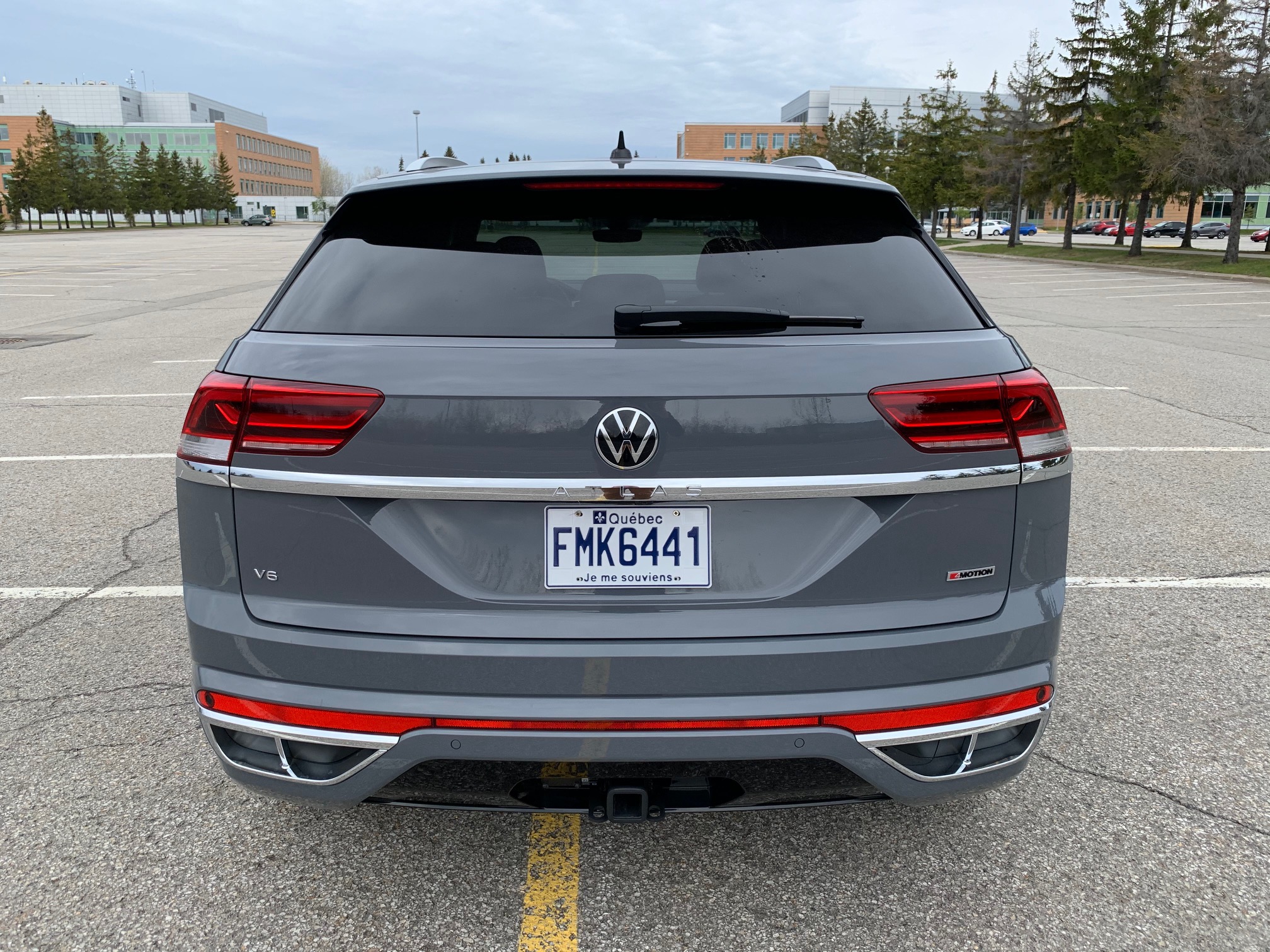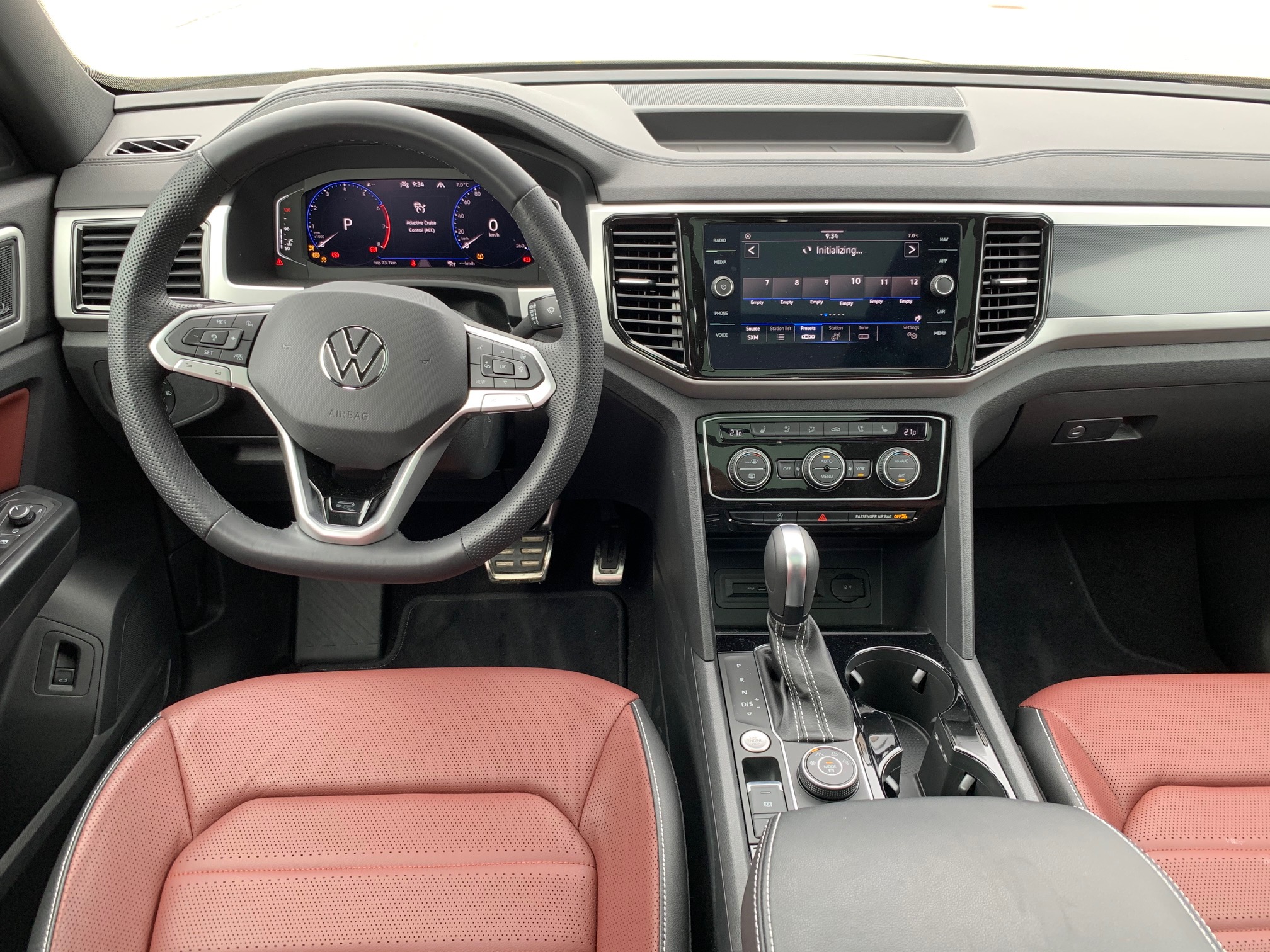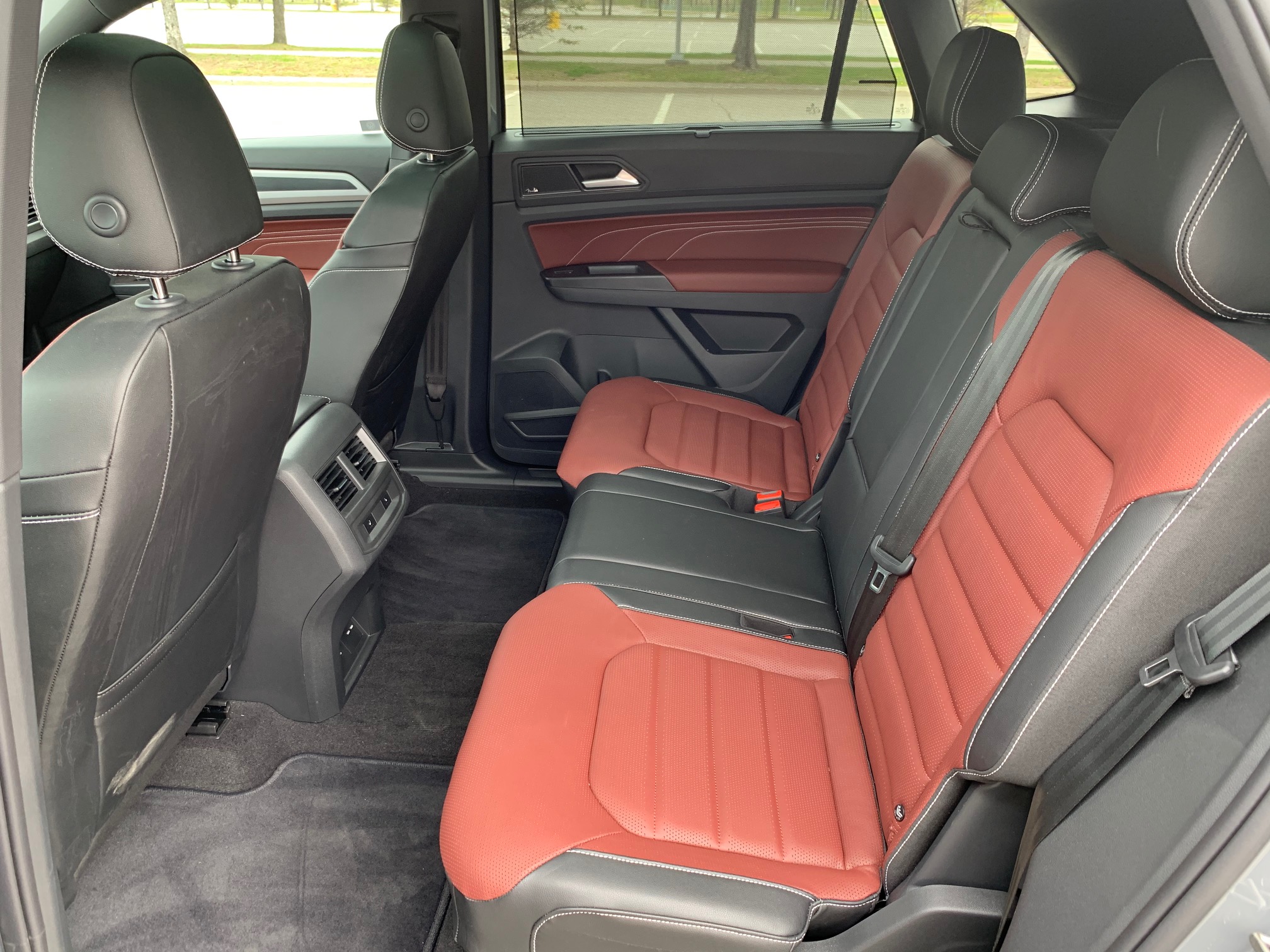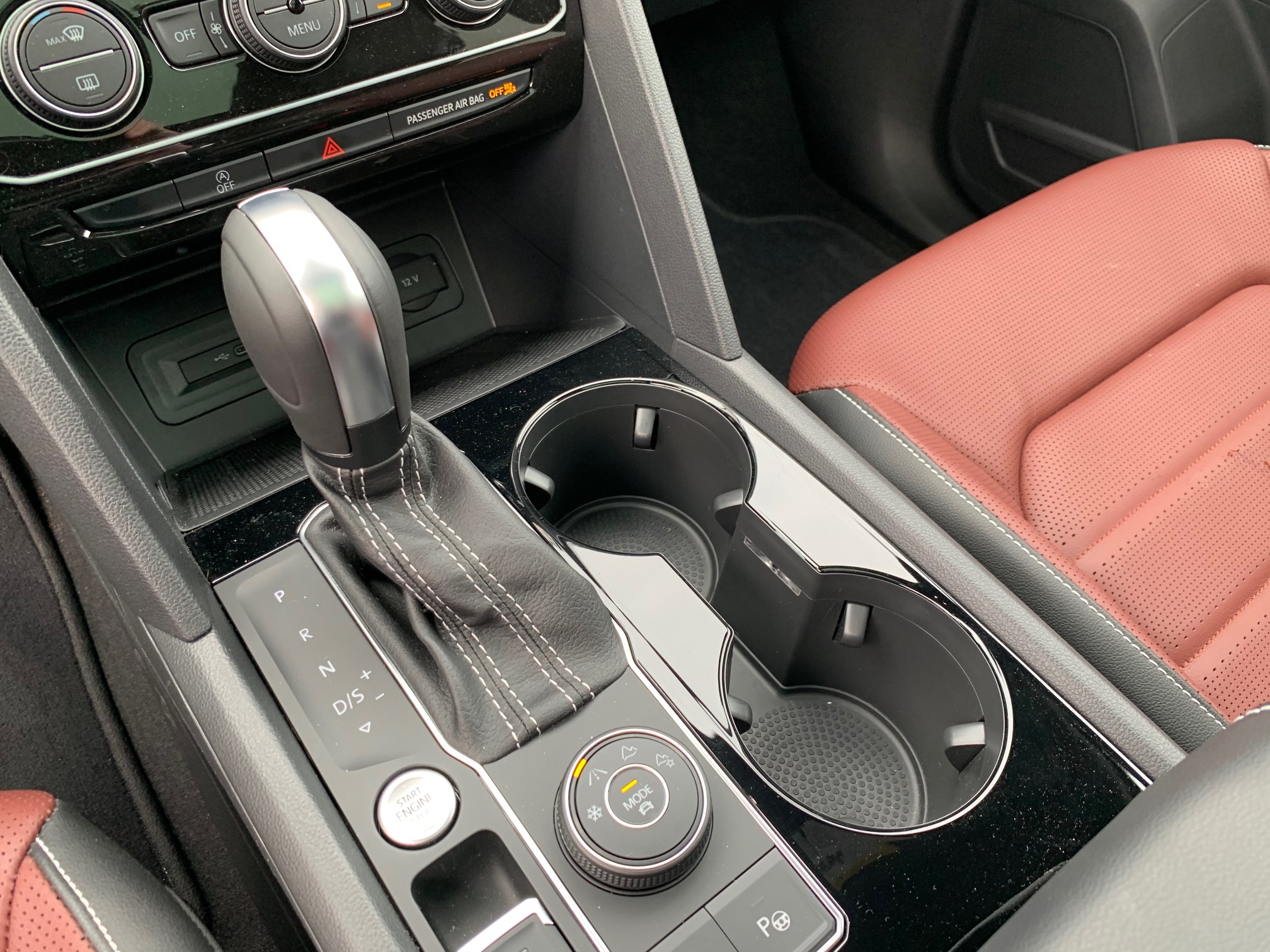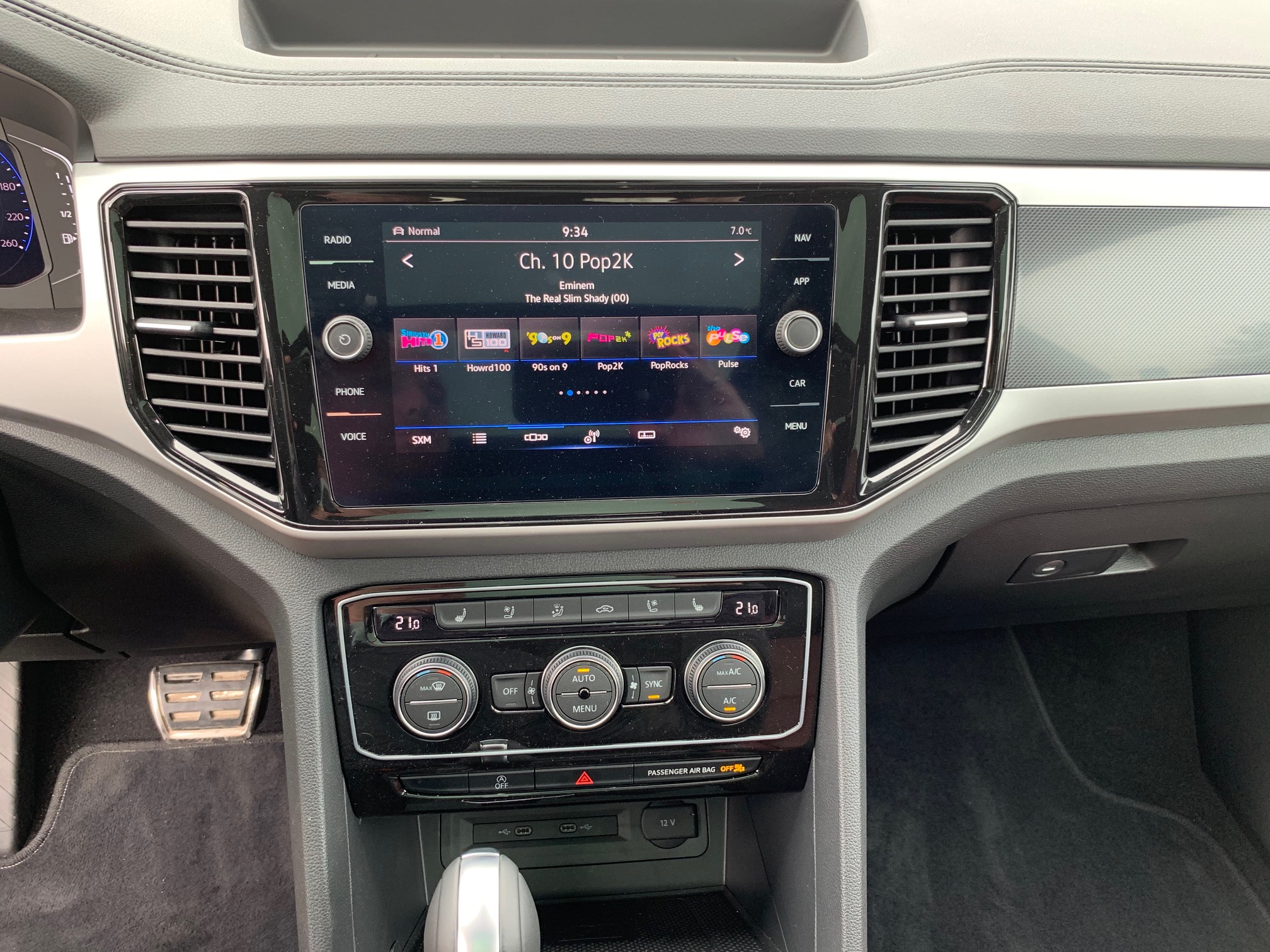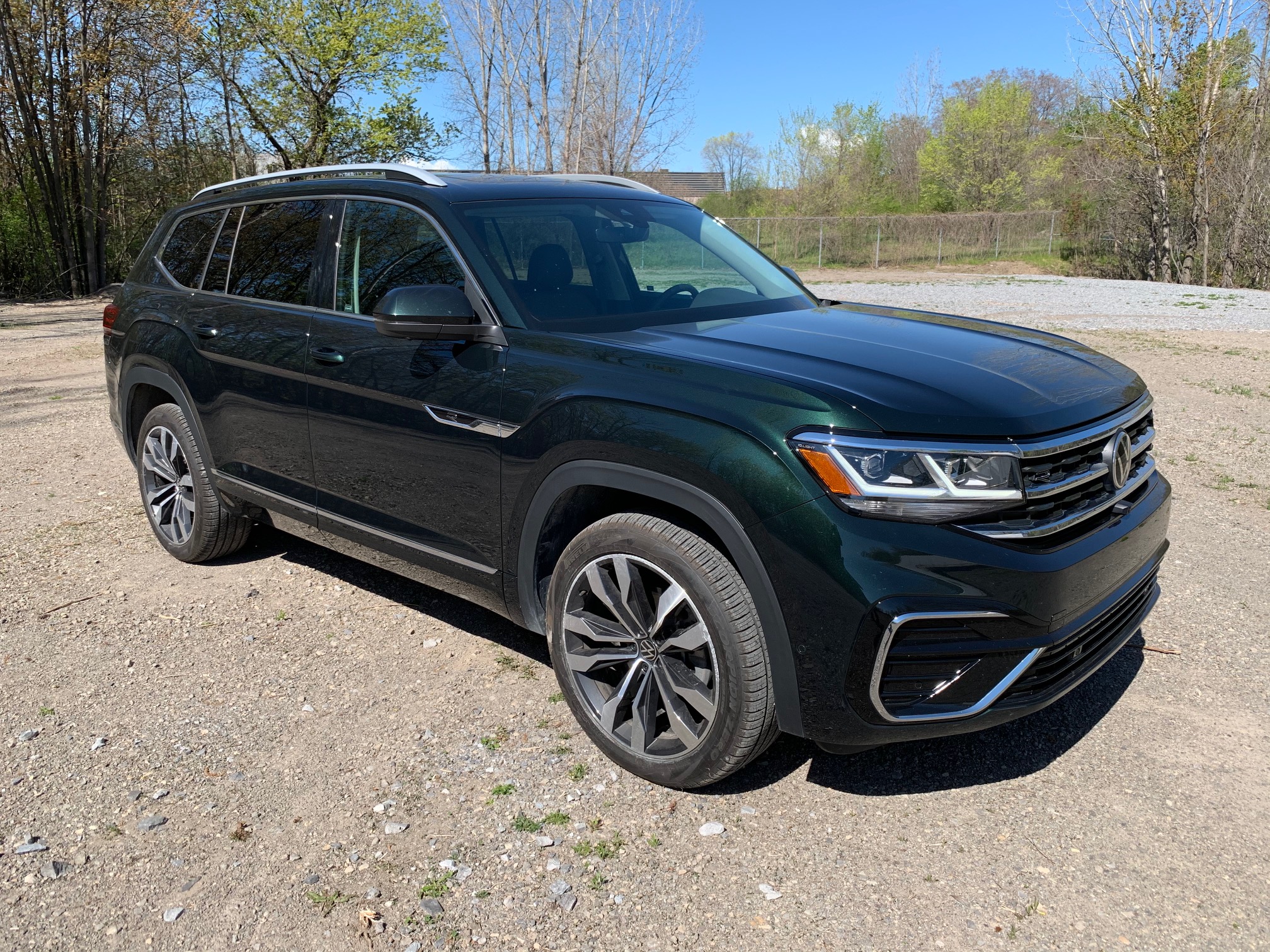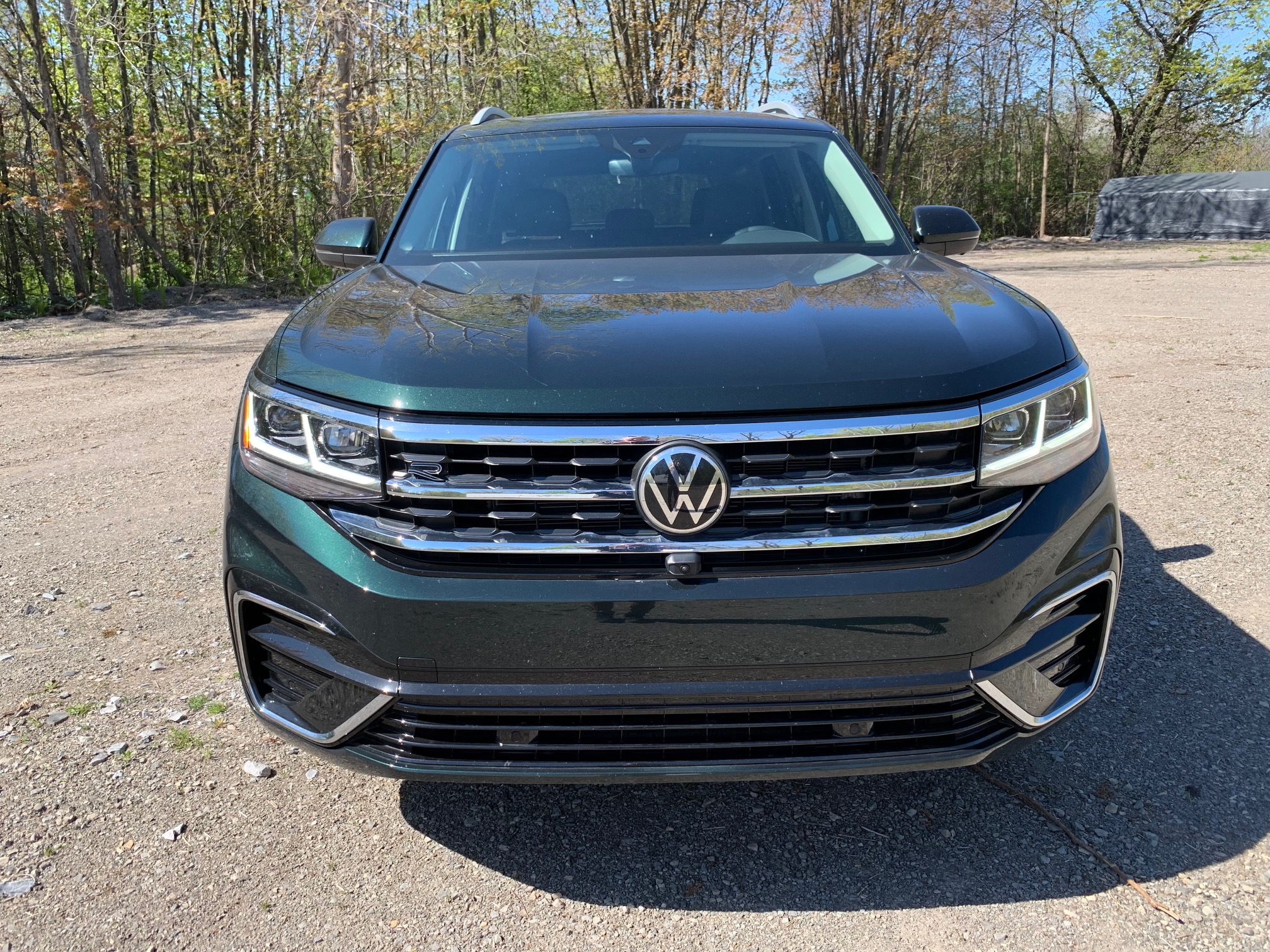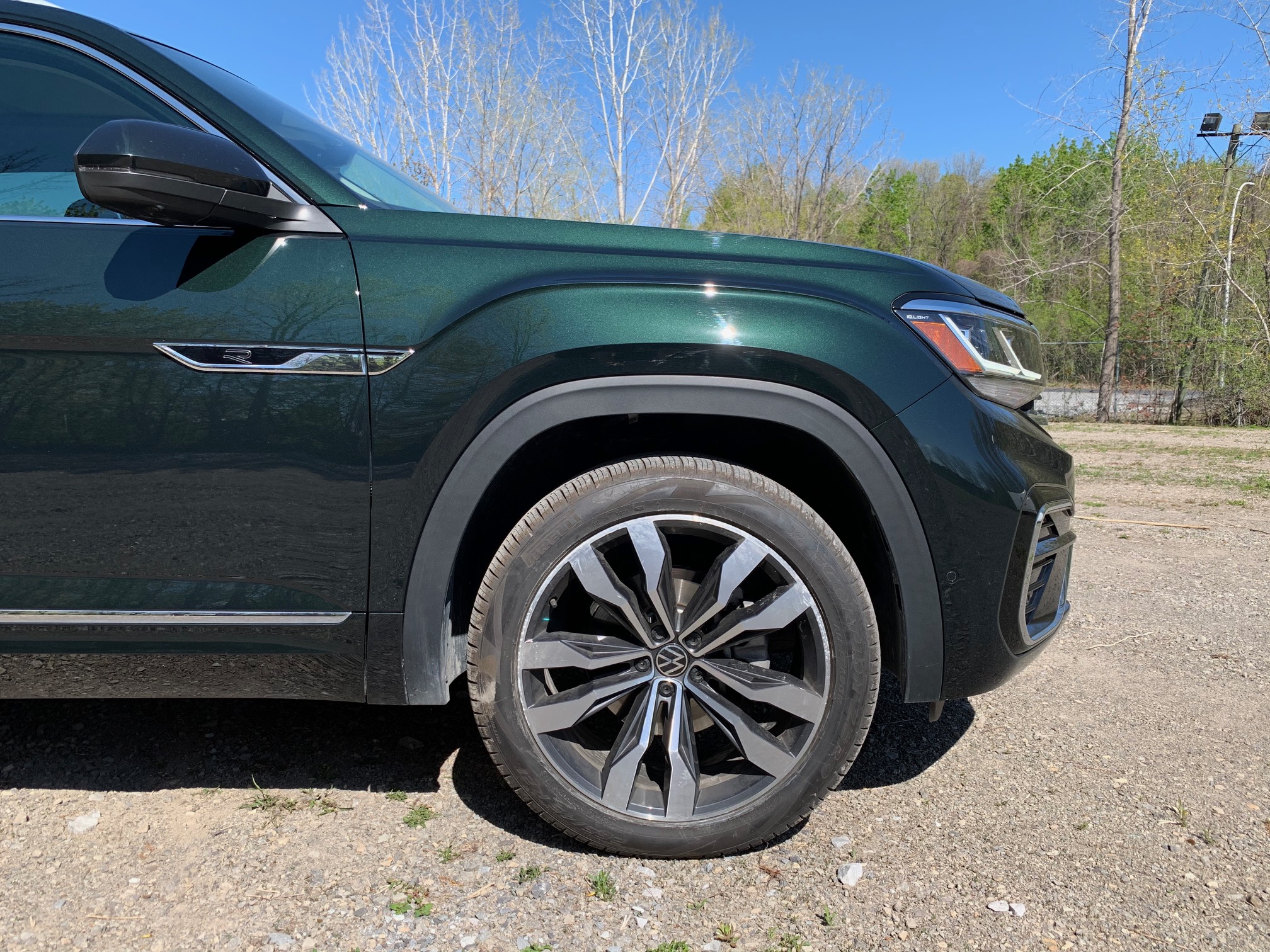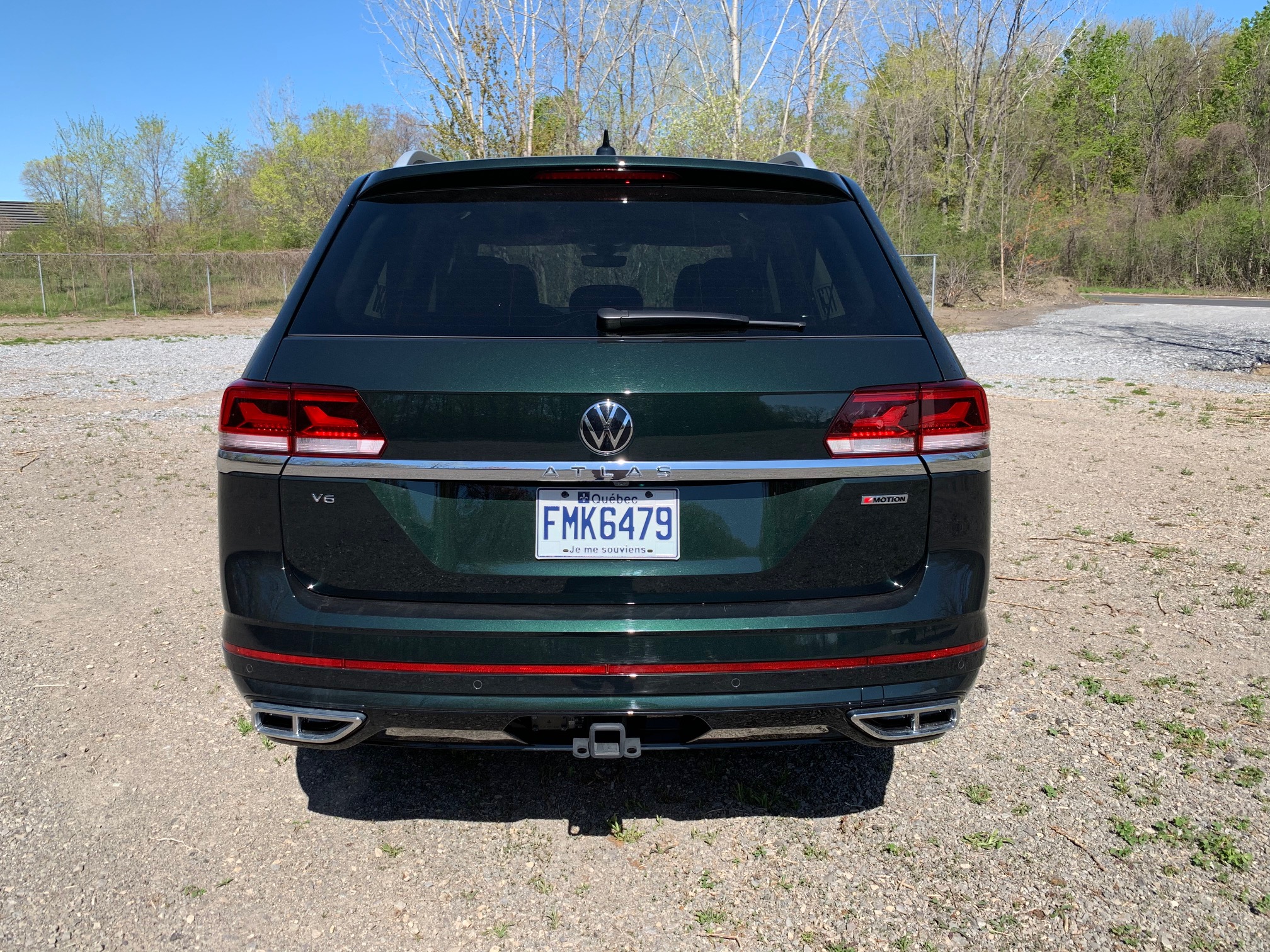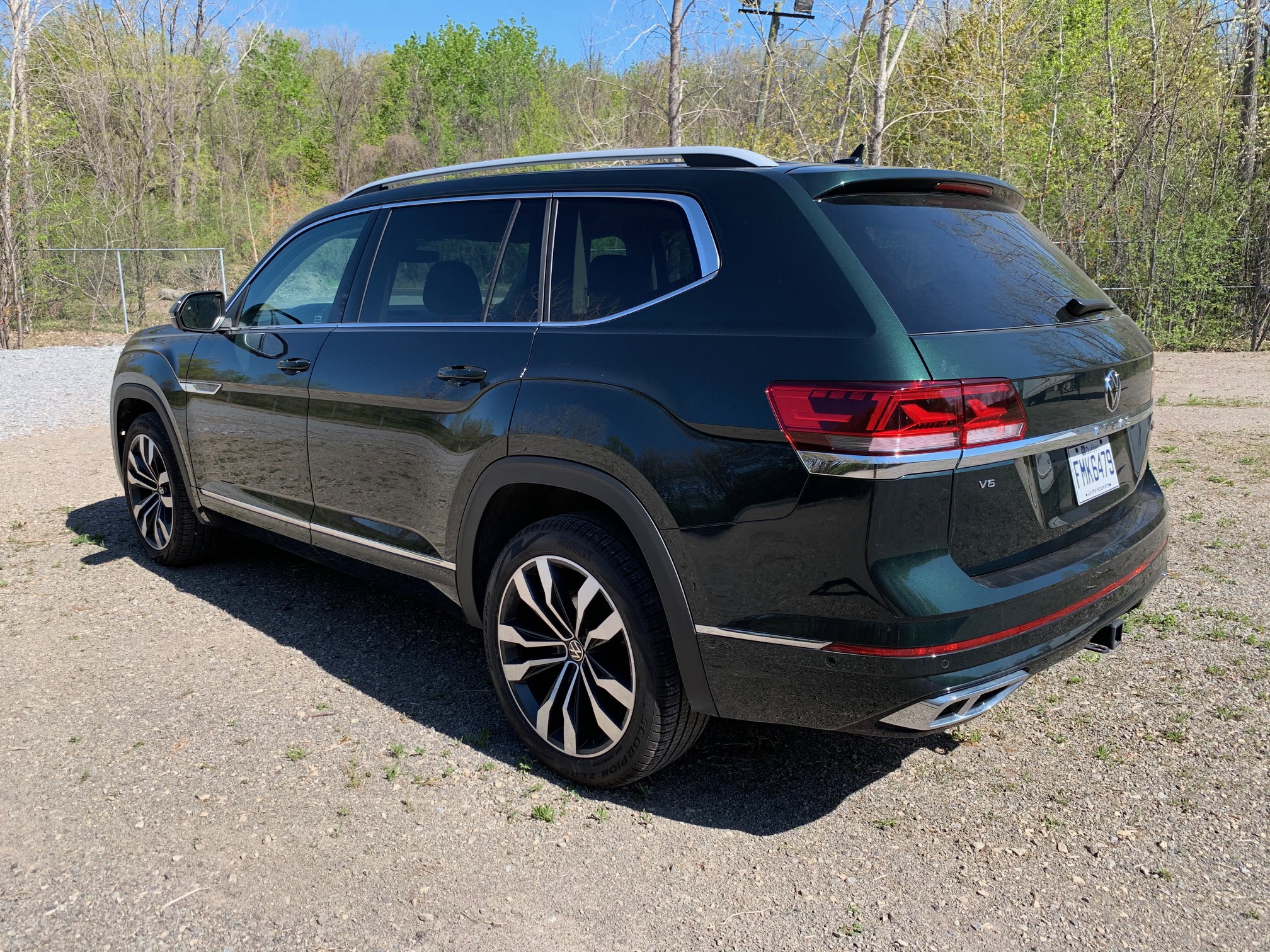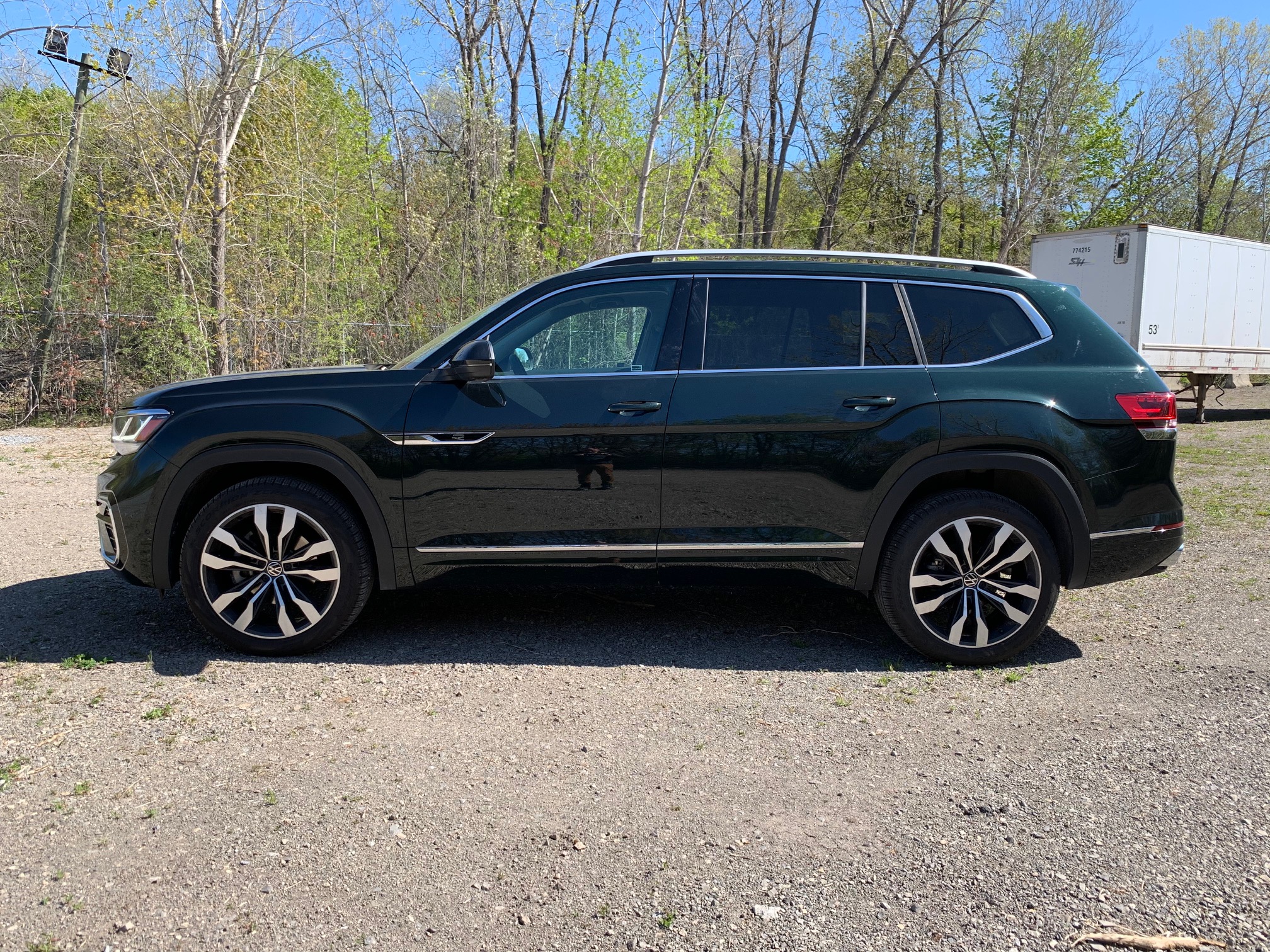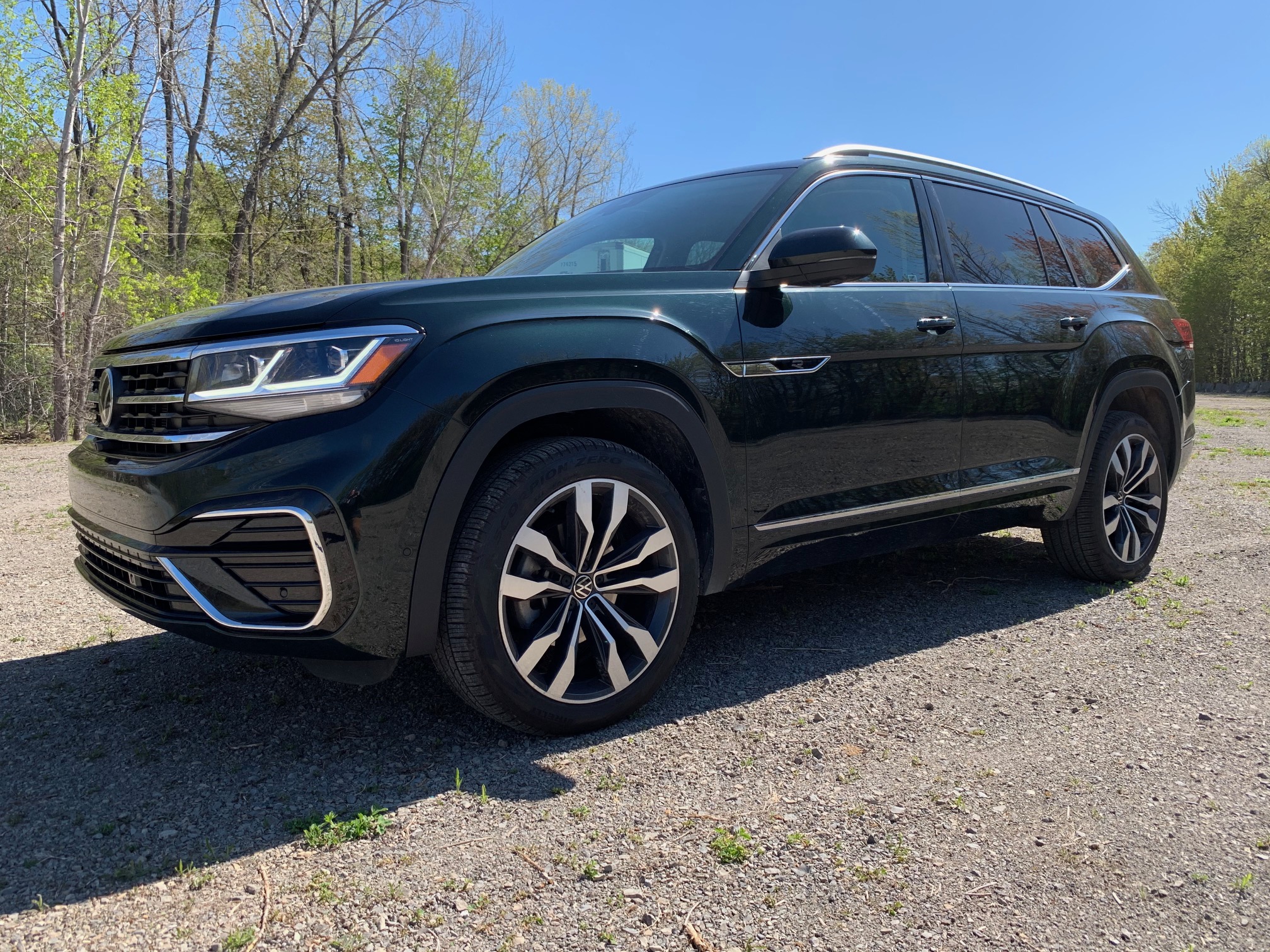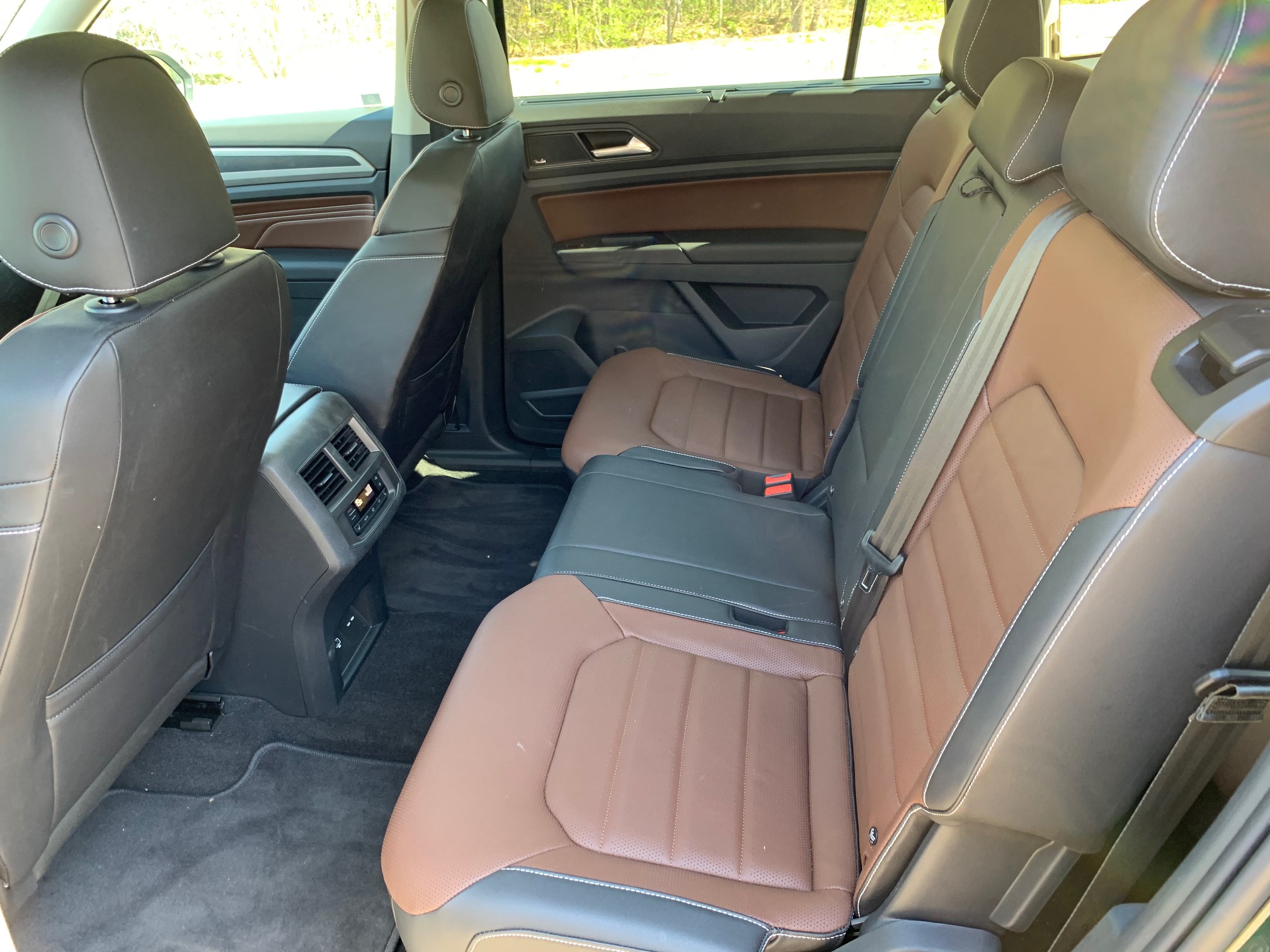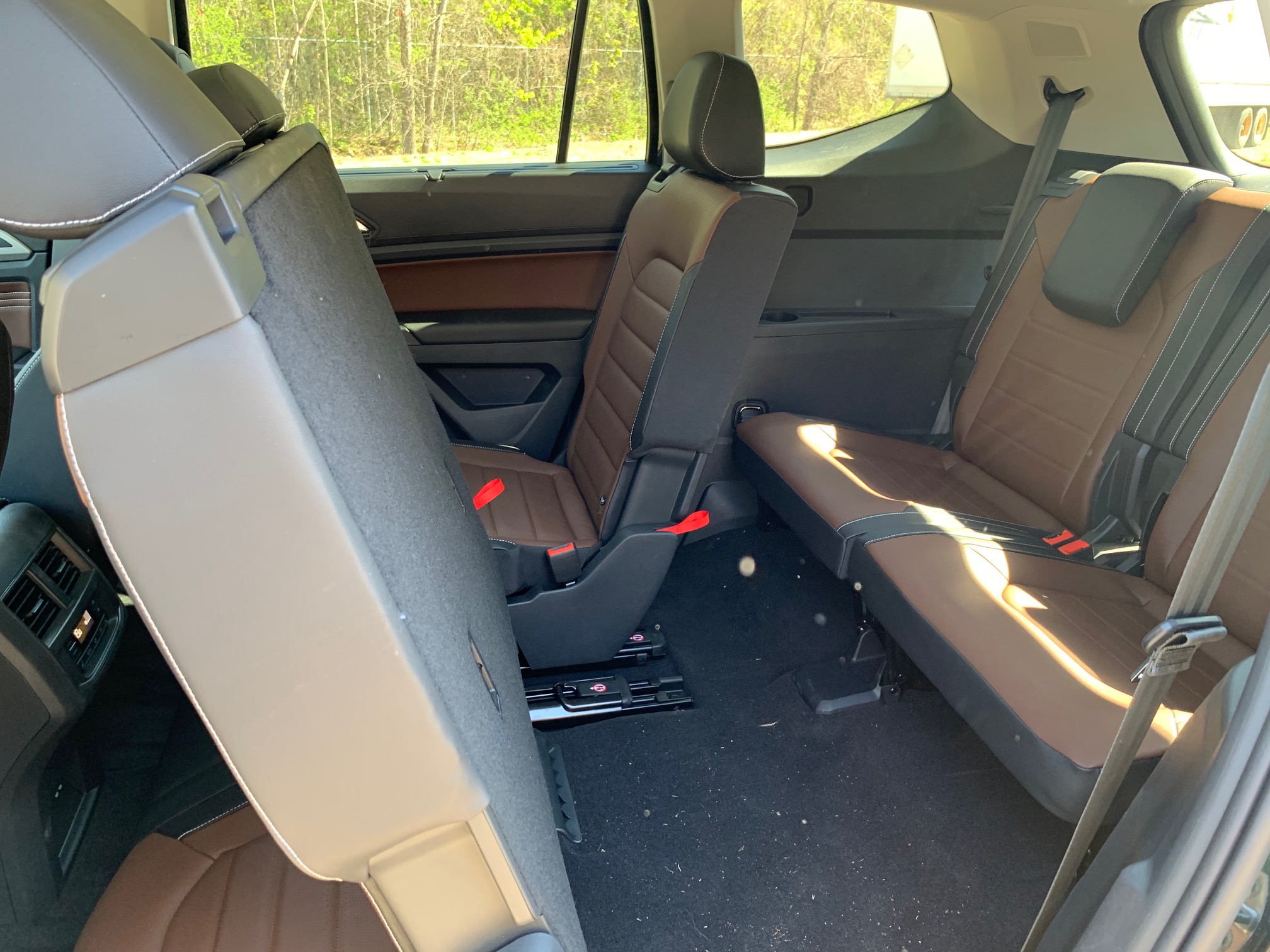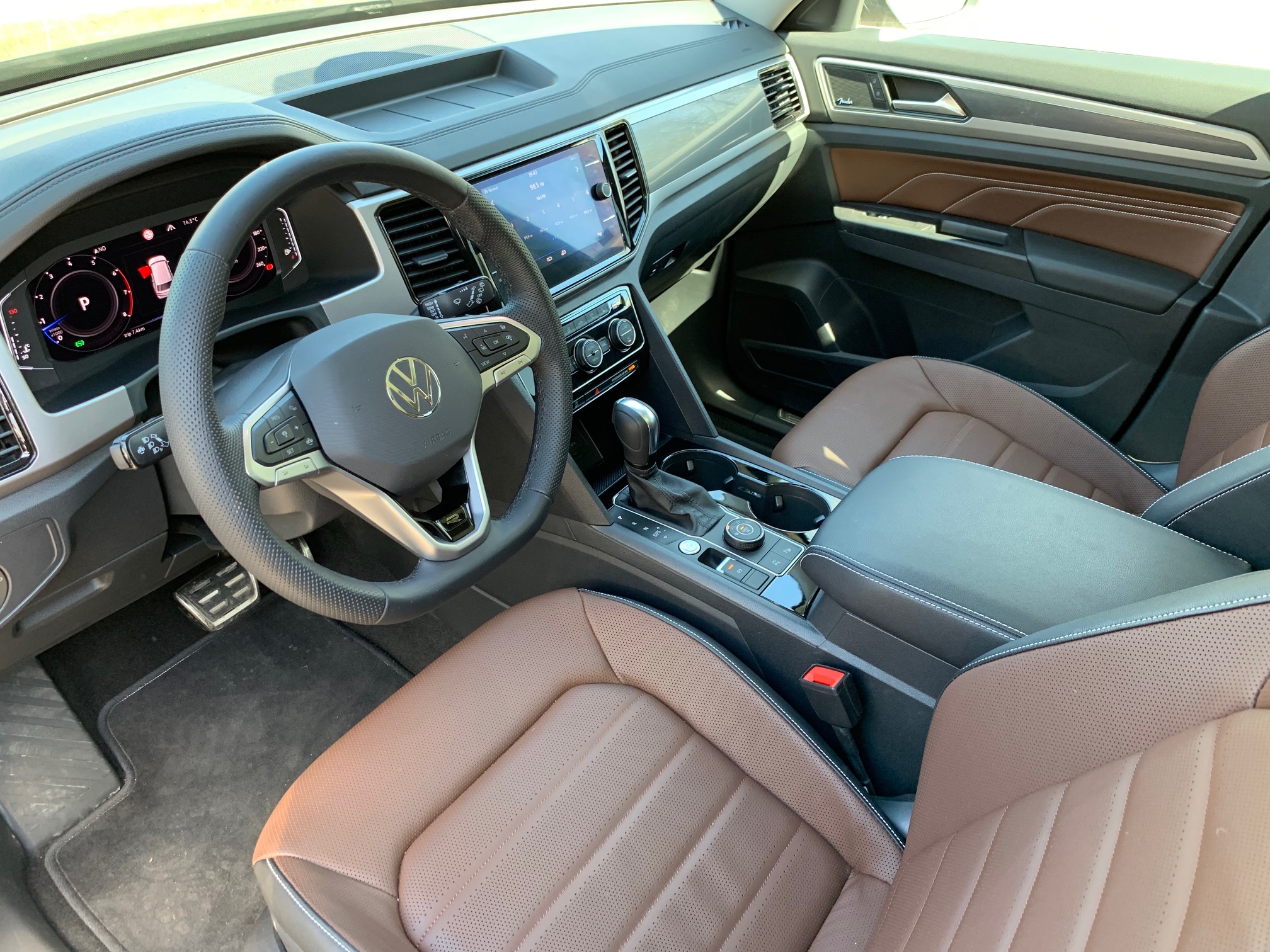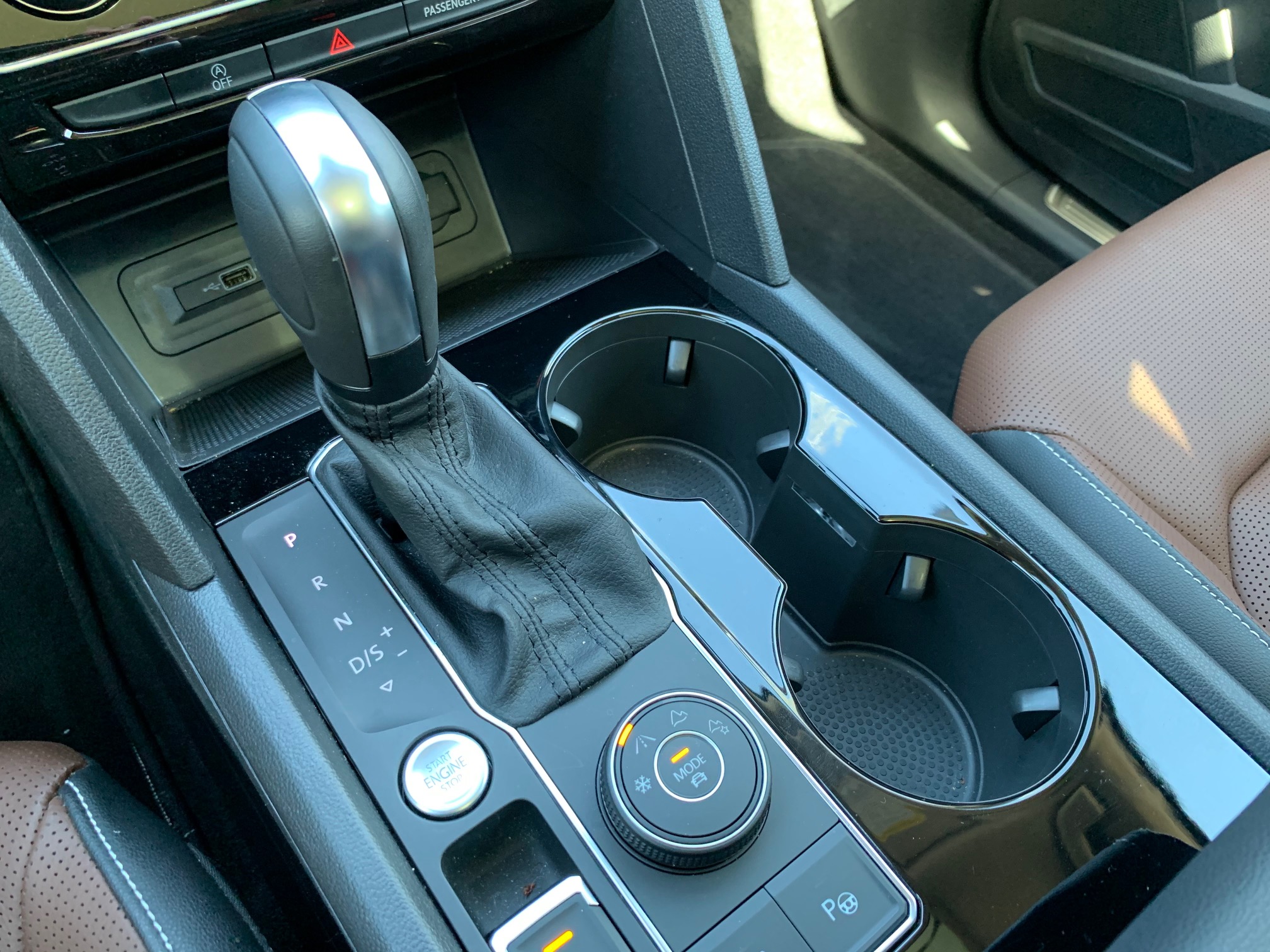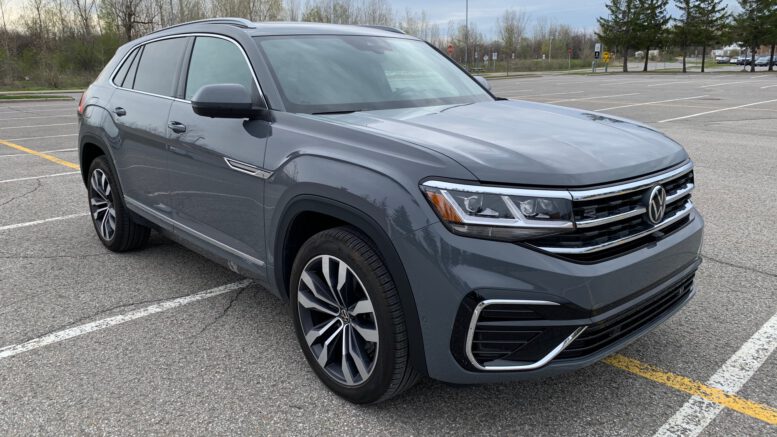Volkswagen has refreshed the popular Atlas SUV for 2021 with a new front end along with a host of other upgrades. The new Atlas is about three inches longer, thanks to new front and rear bumper designs though it retains the same platform a its predecessor.
There is also the addition of the Atlas Cross Sport to the lineup which is a coupe version of the popular sport utility. The coupe is sportier and sleeker-looking though doesn’t offer the same 7-passenger seating as the standard Atlas.
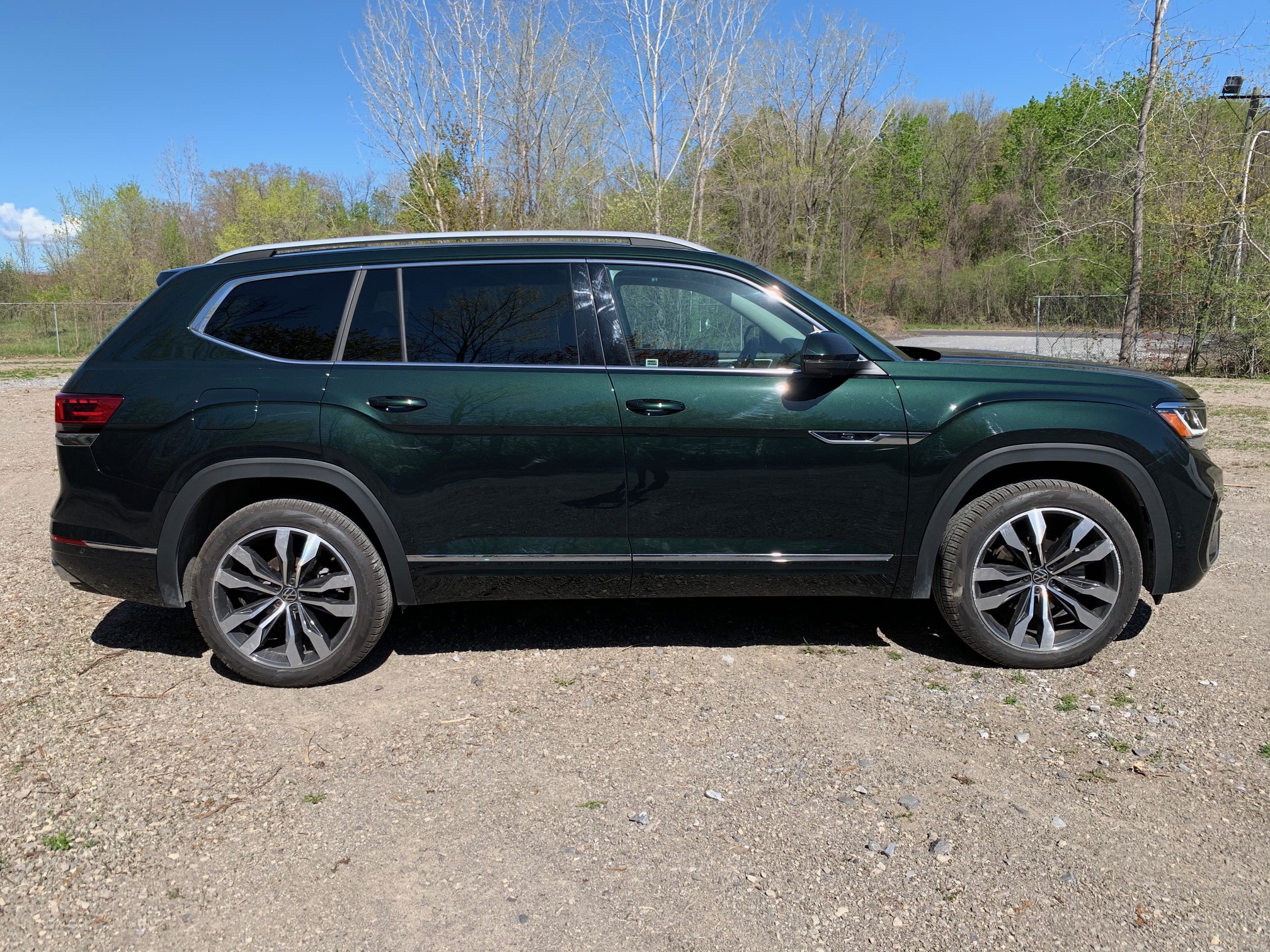
The refreshed 2021 Atlas features new LED headlight and taillight designs along with newly-sculpted front and rear bumpers. The R-line package ups the ante with a unique bumper design, side skirts, and 21-inch aluminum-alloy wheels, as well as signature R-line badging. All in all, I have to say I quite like the new look. The Atlas Cross Sport in particular doesn’t look weird like many of its coupe-SUV competitors. You see the Mercedes and BMW coupe SUVs and they just make you want to cringe. Volkswagen hit the nail on the head here.
The interior also receives upgrades over the previous model, including a new steering wheel, along with available features like heated front and rear seats, a heated steering wheel and a heated windshield. Heated windshields are amazing for preventing ice buildup and work just like the rear defroster only the lines from the heating elements are nearly invisible. It’s a wonder why this feature didn’t become more widespread in the automotive industry sooner.
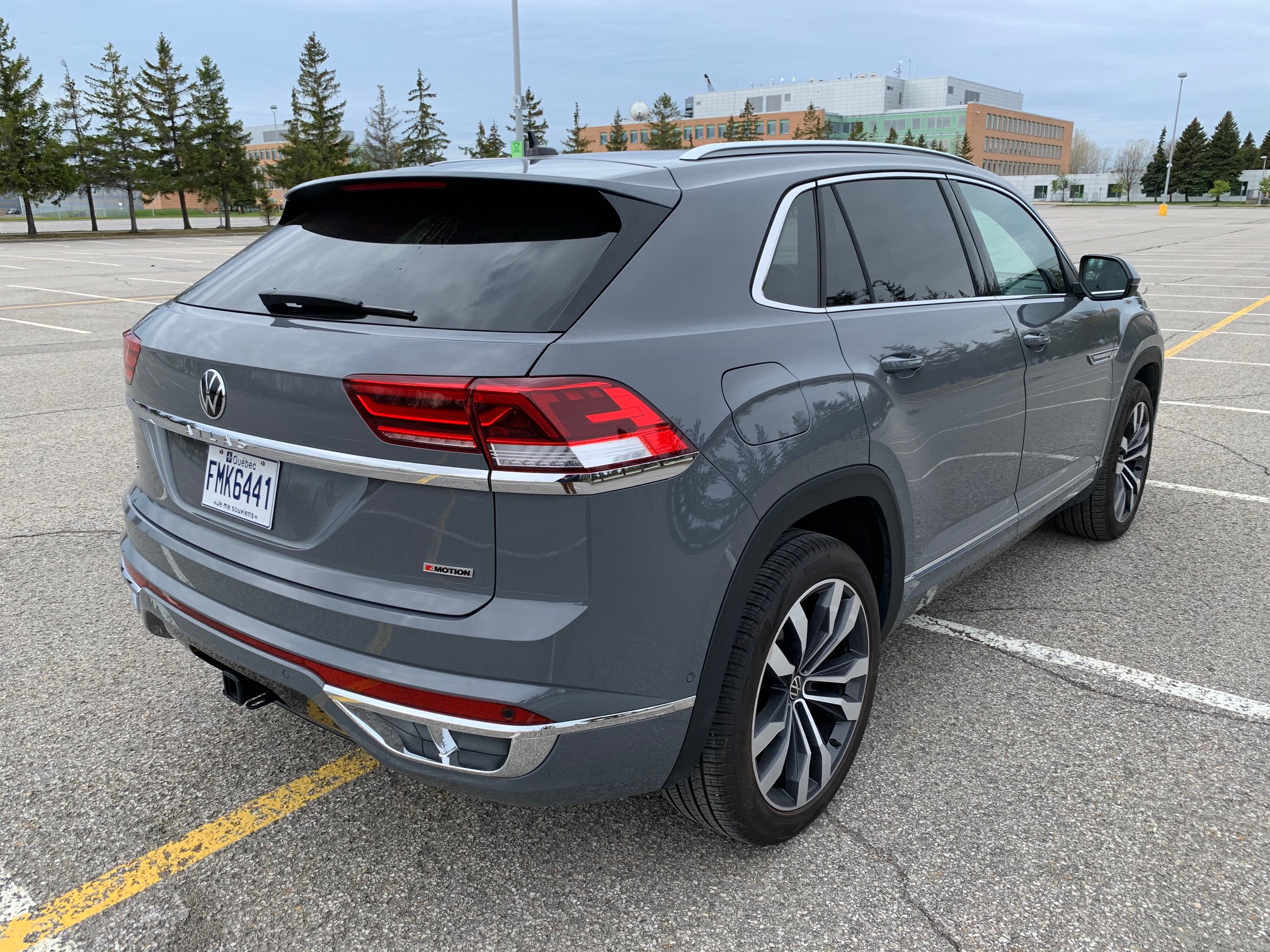
The first thing that stands out when you get inside is just how much space there is. The Atlas makes maximum use of its three-row seating layout to offer places for up to seven adults, boasting a cavernous 153.7 cu-ft of total passenger volume. The standard middle-row bench offers a 60/40 split, a 14-degree backrest recline function, and a 7.7-inch sliding range (each side sliding separately). The interior can be configured with captain’s chairs in the middle row ($625) but this means you lose one seat position. On the other hand, it makes entry and exit from the third row a breeze. The operation of the seats is a cinch and can be complete with one hand only. Same with the third-row bench folding operation.
The interior layout of the Atlas is classic Volkswagen—clean and functional. Driver controls are positioned well for ergonomics and usability. The start/stop button on the lower center console is exactly where it should be. The seat position, shifter height, and the spacing between the pedals are all very well executed. Across all three rows, an array of available inputs (12V, USB, auxiliary), cup holders, bottle holders, storage nets, and cargo containers provide convenience for all passengers.

Volkswagen is known for good build quality and tight-feeling interiors however in some areas there is just too much hard plastic making for a somewhat dated feel. The leather-wrapped steering wheel is a treat to put your hands on and the wheel-mounted controls are among my favorite in the industry. The audio and heating controls are very easy and efficient to operate and use proper dials rather than touch screen buttons. Some manufacturers in their quest to modernize have made basic operation of the rudimentary systems a nightmare but not Volkswagen.
There are two available options to power the Atlas. A 235 horsepower, 2.0-litre TSI four-cylinder engine mated with an eight-speed automatic handles entry-level duty while a 3.6-litre V6 with 276 horsepower and 266 lb-ft of torque is optional. It used to be that the all-wheel drive system was only available on the V6 however thankfully Volkswagen has made it available with the four-banger for 2021.
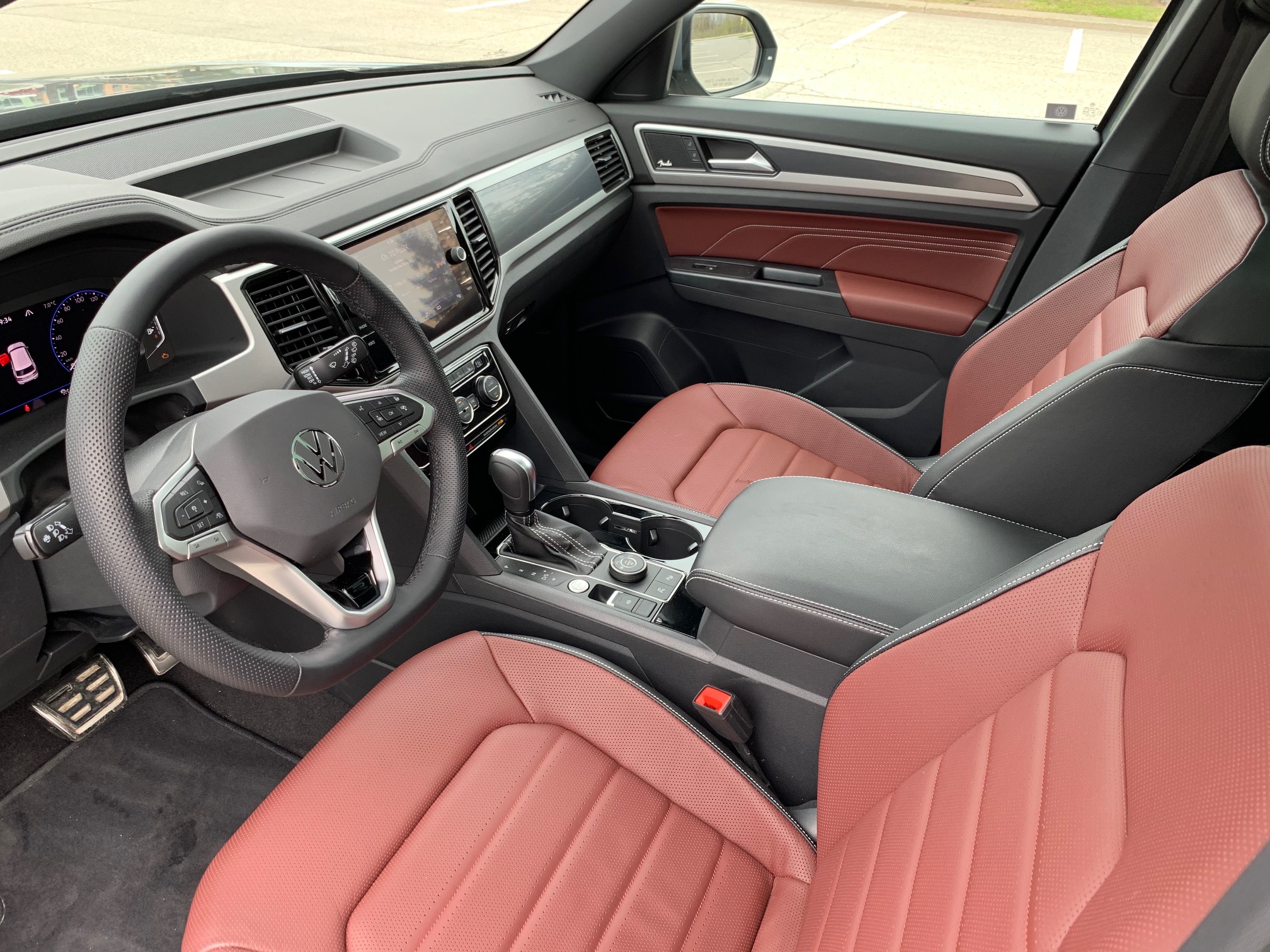
The V6 can propel the Atlas around town just fine but this is no screamer as this crossover weighs quite a bit (2,042 kg). That being said, you can still tow 5,000 pounds in the Atlas. The transmission is smooth enough and the ride is elegant and enjoyable. Fuel economy came in around 14 L / 100 km which is a bit on the heavy side.
When it comes to mid-size SUVs that won’t break the bank, the Atlas does extremely well. There was more interior room in the Atlas than any of the other non-luxury SUVs I’ve tested save for the Hyundai Palisade and Kia Telluride but those are arguably full-size SUVs rather than mid-size which is what I’d classify the Atlas as.
In Canada there are four trims to choose from: Trendline ($40,095) Comfortline ($44,695), Highline ($48,995) and Execline ($55,595).
